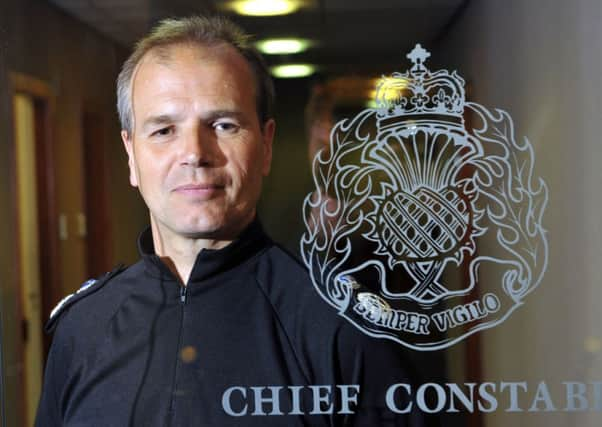Dani Garavelli: Scotland’s Dirty Harry to step down


Although, realistically, it will be a miracle if he lasts that long.
House has been a dead man walking for months now. Lambasted over the fostering of a targets-driven culture and the decision to allow armed officers out on routine patrol, hauled before committee after committee, he had lost all credibility long before the damning report by HMCIS (Her Majesty’s Inspectorate of Constabulary in Scotland) into the force’s controversial stop and search policy was published last week. You could feel sorry for him, but he’s only got himself to blame.
Advertisement
Hide AdAdvertisement
Hide AdDespite repeated warnings, he has continued to act more like Dirty Harry, pursuing criminals according to his own whims, than the smooth political operator the role requires; in doing so he has damaged the force’s reputation and its effectiveness. Nicola Sturgeon’s response may have been muted – an expression of confidence tempered with a warning that even chief constables can’t be a law unto themselves – but there must be limits to what she’s prepared to defend. And even raising the prospect of his departure suggests he knows he’s a goner. Looking back, the character flaws which have led House to this position were always detectable. In early profiles, people spoke of his tendency to micro-manage. There were allusions to his arrogance and his pride. “A crisis of confidence?” he said in an interview published in Scotland on Sunday. “People will tell you that’s not a problem I have.”
Then there was his track record at Strathclyde. Yes, House was praised for reductions in violent crime but his fixation with targets was already in evidence. In 2010, the Strathclyde Police Federation said “competency payments” linked to the issuing of a set number of fixed-penalty fines were turning officers into pushy salesmen.
When House was appointed Chief Constable at Police Scotland, the power seemed to go to his head. Within months, concerns were being raised as he personally flagged down motorists he suspected of speeding. Despite promising locally sensitive policing, he rolled out Strathclyde policies, such as the raiding of previously tolerated saunas in Edinburgh.
There are positive aspects of centralisation. It has enabled officers to take a more co-ordinated approach to domestic violence and child abuse, but it has also allowed House to treat the law-abiding as criminals and to behave as if he were answerable to no-one. The controversy over the decision to send armed officers on routine patrol blew up because he didn’t see any need to consult with or even inform the public, so the first anyone knew of it was when photographs started appearing in newspapers. What was revealing was how nonplussed House seemed to be by the ensuing storm. It was as if he couldn’t quite grasp that decisions which change the nature of policing require democratic consensus.
As for the targets-driven culture, there is nothing more likely to alienate the public than officers trying to catch them out for petty offences just to get their numbers up. Stopping drink drivers is one thing, going into new housing estates in the hopes you’ll catch people who haven’t yet changed their address on their driving licence, another.
And so to the policy on consensual stop and search which has placed him beyond the pale. Not only did HMCIS call for an overhaul of the tactic, including a ban on its use on under-12s and the introduction of a new statutory code of practice, it said it lacked confidence in the data held by the force. Trust has been further eroded by the revelation that it continued to carry out stop and searches on under-12s after it told Holyrood it had stopped.
The reason House’s autocratic approach was allowed to go unchecked for so long is that warnings about a lack of accountability went unheeded. Joint police boards, scrapped when Police Scotland was formed, had their flaws, but the Scottish Police Authority, the body tasked with holding the force accountable, has proved itself inadequate, leaving difficult questions for academics, MSPs and journalists. HMCIS may have got its act together with its report – which made 23 recommendations on stop and search and led to an independent review – but only in response to sustained political pressure.
It is probably too late to salvage House’s reputation. If the cheers that greeted political attacks on him at the Scottish Police Federation conference are anything to go by, he is loathed by rank and file officers. And even now he seems unable to acknowledge the extent of his failings. When he goes, it is to be hoped the SPA will appoint someone less gung-ho and more receptive to constructive criticism. In the meantime, the public needs to be reaasured the watchdogs have the will and the resources to hold him and his successor to account.
Advertisement
Hide AdAdvertisement
Hide AdEffective policing depends on a positive relationship with the community. That can’t flourish unless people are confident their Chief Constable understands the limits of his or her powers and that the appropriate checks and balances are in place to ensure they do not exceed them.
FOLLOW US
SCOTSMAN TABLET AND MOBILE APPS